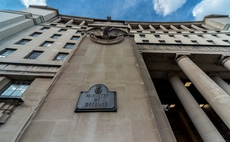The prime minster's speech yesterday promised a UK freed from the apparent dangers of adult material. But can such censorship really be achieved?
Prime minister David Cameron's announcement that access to pornography will be switched to a "default off" state for the UK's major internet service providers was a potentially welcome decision for...
To continue reading this article...
Join Computing
- Unlimited access to real-time news, analysis and opinion from the technology industry
- Receive important and breaking news in our daily newsletter
- Be the first to hear about our events and awards programmes
- Join live member only interviews with IT leaders at the ‘IT Lounge’; your chance to ask your burning tech questions and have them answered
- Access to the Computing Delta hub providing market intelligence and research
- Receive our members-only newsletter with exclusive opinion pieces from senior IT Leaders






















